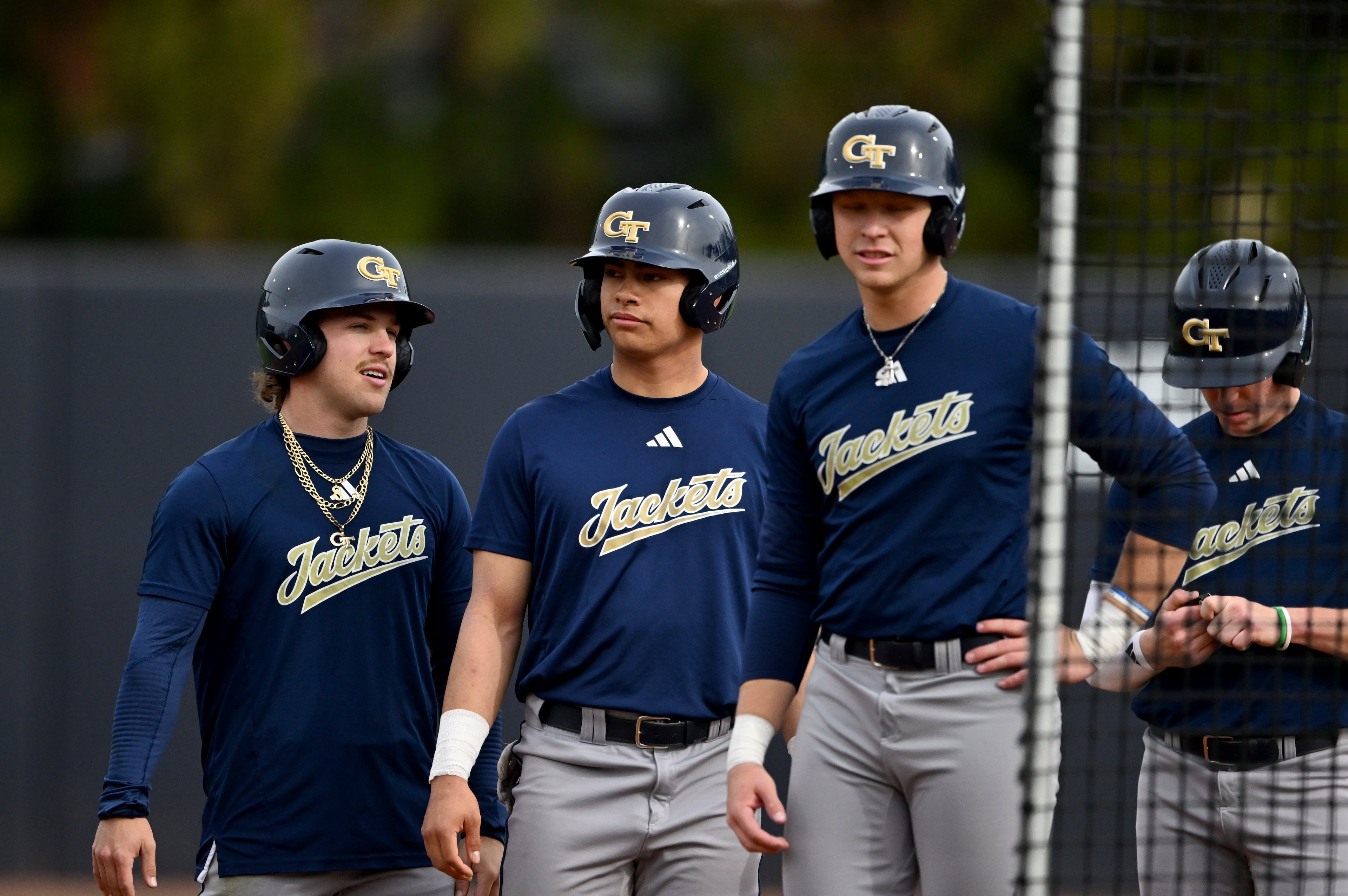Georgia Tech trying a different defensive path

After four consecutive years of placing a center on the ACC’s all-defensive team, Georgia Tech has a candidate this season in guard Jose Alvarado. After the senior scrapped for three steals Wednesday in the Yellow Jackets’ upset of No. 20 Clemson, Tigers coach Brad Brownell sounded ready to cast his vote.
“Alvarado really gets up under you and does an unbelievable job guarding the ball, guarding pick-and-rolls,” Brownell said.
In a season in which Alvarado has bumped up his scoring – he ranks sixth in the ACC at 17.1 points per game and sixth in field-goal percentage at 52.2% – his defense has shined, as well. He ranks second in the conference in steals at 2.4 per game, although that hardly is the total of his value to Tech’s defensive efforts. Challenging shots, fighting through screens and hitting the glass for rebounds are among the tasks he has filled for Tech, which plays perhaps its biggest game of the season Saturday, at No. 13 Virginia.
“Obviously, I go in with a mindset every game that I want to be the best defender on the court,” Alvarado said. “I try to give the offense a little bit of a struggle, try to get them on their toes every time they play me. I just try to read the defense as best I can.
“My teammates obviously help me when they’re putting pressure on the ball. I just come out and sneak one in here and there.”
Alvarado’s disruptive efforts have been joined by those of his teammates. Going into Friday’s games, Tech ranked 36th nationally in defensive turnover percentage (22.6%, per KenPom). In coach Josh Pastner’s first four seasons, the Jackets’ highest finish was 143rd.
Against Clemson on Wednesday, Tech generated 20 turnovers in 60 possessions, leading to 30 points off turnovers. Guard Michael Devoe contributed three steals. Guard Bubba Parham drew at least three charges. By the count of KenPom, it was Clemson’s highest turnover percentage in the past seven seasons.
“They really swarm to the ball, and I think they try to strip you,” Brownell said.
Thus far, Pastner’s decision to go with a small lineup – forward Moses Wright is typically the only frontcourt player in the rotation – has resulted in an offensive explosion. With the exploits of Alvarado, Wright (17.4 points per game) and Devoe (15.0 ppg), Tech leads the ACC in points per game at 80.4. In Pastner’s first four seasons, the Jackets’ high was 68.6 points per game.
But, at the other end, Pastner’s capacity to transform his team’s defensive style and be effective with an undersized lineup has made the scoring increase stand up. Without an agile rim defender such as Ben Lammers or James Banks – Tech’s all-defensive centers – the Jackets can’t challenge shots nearly as they did in Pastner’s first four seasons.
Tech ranked in the top 33 in Division I in blocks per game in each of the past four years, with a minimum of 4.6 rejections per game. The defensive field-goal percentage reflected that interior presence, ranking in the top 33 nationally three times.
However, before Friday’s games, the Jackets were 226th at 2.7 blocks per game and 256th in defensive field-goal percentage at 45.4%. But, with five active defenders on the floor, the Jackets have compensated with turnover creation. And it has provided Tech with a different path to achieve the same end goal – outscoring the opponent. Tech is giving up the most points it has under Pastner (72.5 points per game), but its scoring margin (7.9, 90th in Division I before Friday’s games) points per game also is the largest in his tenure. Tech’s highest finish scoring margin in Pastner’s first four seasons was 165th (2.2), last season.
Not having a center such as Lammers or Banks is “a big drop-off, but we’ve done other things by forcing turnovers this year, more so than we’ve done in years past,” Pastner said “because we had to change some different things to meet our personnel.”
To that end, Saturday will be Tech’s most stringent test of the season, and not only because the Cavaliers are 9-2 and on a five-game win streak. Virginia is not an ideal matchup for a team that lacks height and tries to force turnovers.
Coach Tony Bennett’s team ranks second in Division I in turnovers, at 8.2 per game. Also, Virginia can exploit the Jackets’ lineup with Jay Huff (7-foot-1) and Sam Hauser (6-8). The two average a combined 26.6 points and 13.5 rebounds per game and both handle the ball well.
“Going into the game, we know Virginia, obviously, they won’t beat themselves,” Alvarado said. “We’ve got to go there and play a really good game, and that’s what our plan is.”
The height disadvantage can be overcome. Against North Carolina, laden with big men, Tech won 72-67, in no small part by winning the turnover margin 18-13.
For the Jackets, whose NCAA tournament hopes rest on defeating the likes of Virginia, it likely will require an even greater performance to undo Virginia. Bennett has a 13-2 record against Tech, including wins in the past six meetings.
Unless Alvarado decides to return for his extra season of eligibility – or the Jackets and Cavaliers meet in the postseason – he is down to his second-to-last chance to beat Virginia, the league’s standard bearer throughout his time as a Jacket.
“Just gave me a little boost,” Alvarado said Friday, after being told he was winless against Virginia. “Now I’m excited to go in there. I didn’t know that, so now I’ve got to beat them.”



